
Palm Jumeirah: The Pinnacle of Luxury and Innovation
Palm Jumeirah, an iconic symbol of Dubai's opulence and engineering prowess, is a must-visit for any traveler exploring the United Arab Emirates. This man-made island, shaped like a palm tree, stretches into the Arabian Gulf and is home to some of the world's most luxurious hotels, upscale restaurants, and pristine beaches. The island offers a unique blend of relaxation, adventure, and entertainment, making it a perfect destination for families, couples, and solo travelers alike. At the heart of Palm Jumeirah lies Atlantis, The Palm, a world-renowned resort featuring an impressive water park, an underwater aquarium, and a plethora of dining options. Visitors can swim with dolphins, take thrilling water slides, or simply unwind at the tranquil beaches. The Pointe, another popular attraction, offers a stunning waterfront dining and shopping experience, with views of the mesmerizing Dubai skyline. For those seeking adventure, Palm Jumeirah provides numerous water sports activities such as jet skiing, paddleboarding, and parasailing. The island's monorail system ensures easy access to all its attractions, while the Palm Jumeirah Boardwalk offers a scenic route for leisurely strolls or bike rides. With its blend of luxury, innovation, and natural beauty, Palm Jumeirah promises an unforgettable experience for every visitor.
Local tips in Palm Jumeirah
- Book your stay in advance to secure the best rates at luxury hotels.
- Visit The Pointe during the evening to enjoy the fountain show and vibrant nightlife.
- Use the Palm Monorail for convenient and scenic transportation across the island.
- Plan a visit to Atlantis, The Palm's Aquaventure Waterpark for a day of family fun.
- Dine at one of the many fine restaurants offering international cuisines for a unique culinary experience.
Palm Jumeirah: The Pinnacle of Luxury and Innovation
Palm Jumeirah, an iconic symbol of Dubai's opulence and engineering prowess, is a must-visit for any traveler exploring the United Arab Emirates. This man-made island, shaped like a palm tree, stretches into the Arabian Gulf and is home to some of the world's most luxurious hotels, upscale restaurants, and pristine beaches. The island offers a unique blend of relaxation, adventure, and entertainment, making it a perfect destination for families, couples, and solo travelers alike. At the heart of Palm Jumeirah lies Atlantis, The Palm, a world-renowned resort featuring an impressive water park, an underwater aquarium, and a plethora of dining options. Visitors can swim with dolphins, take thrilling water slides, or simply unwind at the tranquil beaches. The Pointe, another popular attraction, offers a stunning waterfront dining and shopping experience, with views of the mesmerizing Dubai skyline. For those seeking adventure, Palm Jumeirah provides numerous water sports activities such as jet skiing, paddleboarding, and parasailing. The island's monorail system ensures easy access to all its attractions, while the Palm Jumeirah Boardwalk offers a scenic route for leisurely strolls or bike rides. With its blend of luxury, innovation, and natural beauty, Palm Jumeirah promises an unforgettable experience for every visitor.
When is the best time to go to Palm Jumeirah?
Iconic landmarks you can’t miss
The View at the Palm
Experience stunning panoramic views of Dubai's skyline and the iconic Palm Jumeirah at The View at the Palm, an unforgettable observation deck.
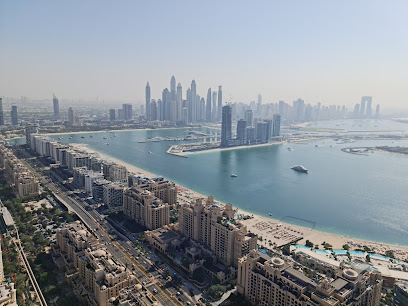
The Lost Chambers Aquarium at Aquaventure World
Discover the enchanting marine world at The Lost Chambers Aquarium, an aquatic paradise on Palm Jumeirah, Dubai, featuring stunning exhibits and unforgettable experiences.
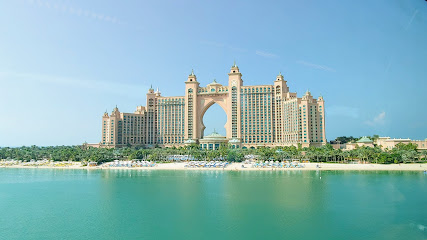
The Lost Chambers Aquarium
Explore the enchanting Lost Chambers Aquarium at Atlantis, The Palm, where a vibrant underwater world awaits with thousands of marine species.
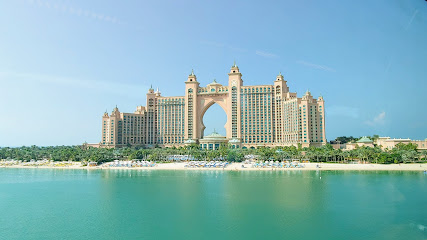
The Pointe - Palm Jumeirah Fountain Walk (North)
Experience luxury and breathtaking views at The Pointe on Palm Jumeirah, where dining and entertainment meet stunning waterfront beauty.
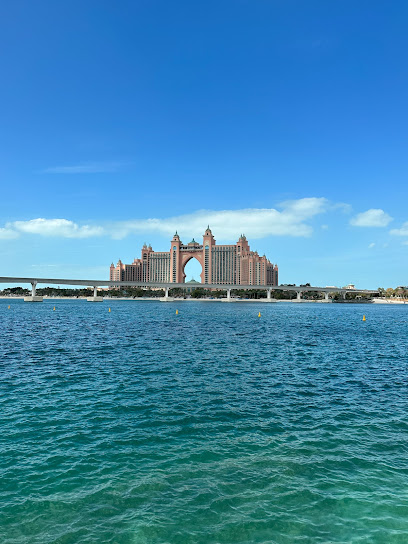
Al Ittihad Park
Discover tranquility at Al Ittihad Park, a lush oasis on Palm Jumeirah with stunning views, vibrant flora, and family-friendly spaces for relaxation.
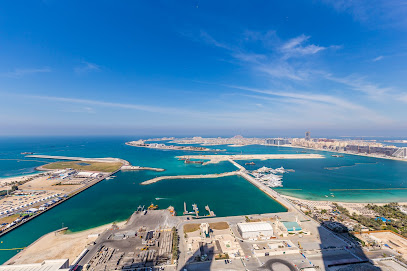
Palm Jumeirah Corniche Area
Experience the breathtaking views and vibrant atmosphere of Palm Jumeirah Corniche, a premier tourist attraction in Dubai's iconic Palm Jumeirah.
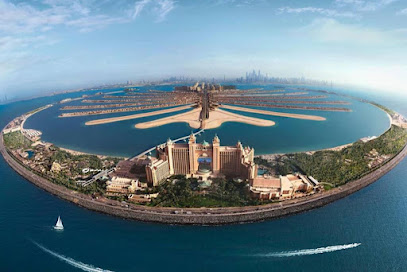
Palm Jumeirah Boardwalk
Discover the beauty of Palm Jumeirah Boardwalk, where stunning views, dining, and leisure converge on Dubai's iconic island.
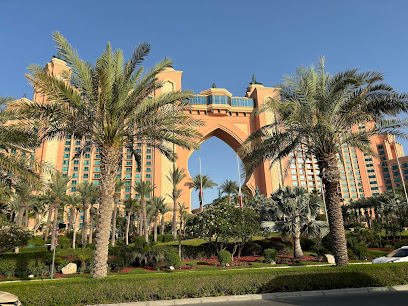
Palm Jumeirah West
Discover the luxurious charm of Palm Jumeirah West, Dubai’s iconic island retreat with stunning beaches, upscale dining, and vibrant nightlife.
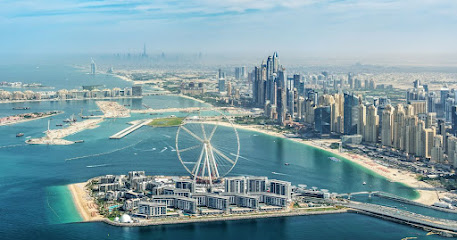
The Boardwalk, Palm Jumeirah
Experience the enchanting Boardwalk at Palm Jumeirah, a stunning pedestrian paradise with breathtaking views, exquisite dining, and vibrant entertainment.
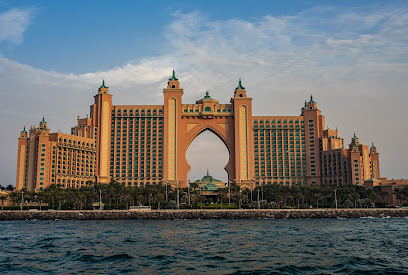
Crescent St. Palm Jumeirah WalkWay
Experience the breathtaking views and vibrant atmosphere along the Crescent St. Palm Jumeirah WalkWay, where luxury meets nature in Dubai.
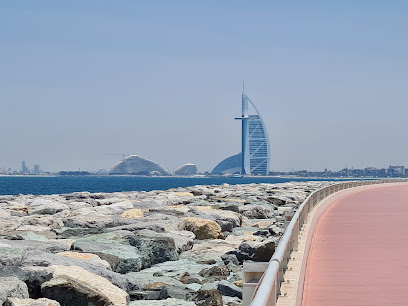
Palm Jumeirah Walk way
Discover the breathtaking Palm Jumeirah Walkway, a stunning promenade offering scenic views, vibrant atmosphere, and a taste of Dubai's luxury lifestyle.
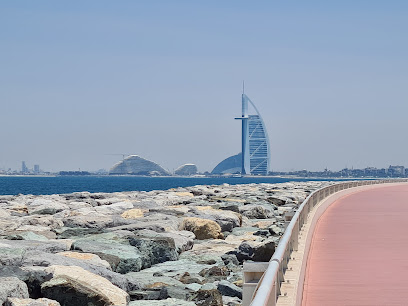
Palm jumerah
Explore the breathtaking Palm Jumeirah, Dubai's iconic man-made island, where luxury meets adventure along stunning beachfront views.
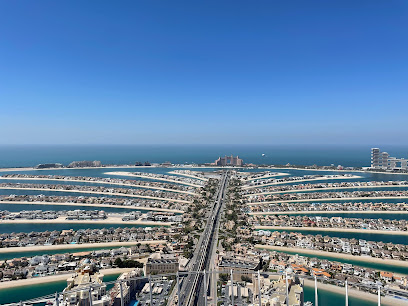
The Palm Jumeirah - United Arab Emirates
Discover the stunning Palm Jumeirah: a marvel of engineering, luxury resorts, and breathtaking views in Dubai's iconic landscape.
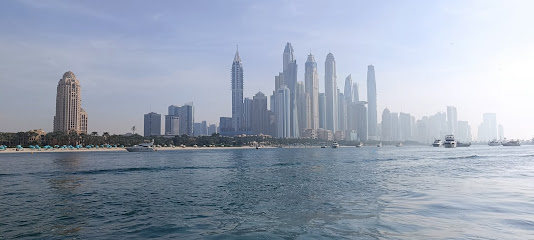
The view at Pal Jumeirah
Experience the breathtaking views and luxurious offerings of Palm Jumeirah, Dubai's iconic man-made island, where opulence meets stunning scenery.
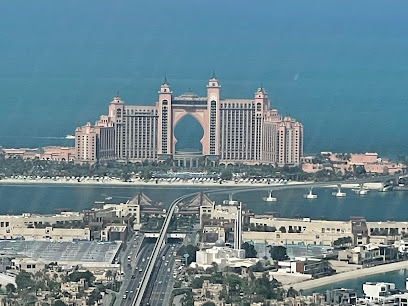
Unmissable attractions to see
Burj Park
Experience the lush beauty and iconic views of Burj Park, the perfect urban oasis at the foot of Dubai's Burj Khalifa.
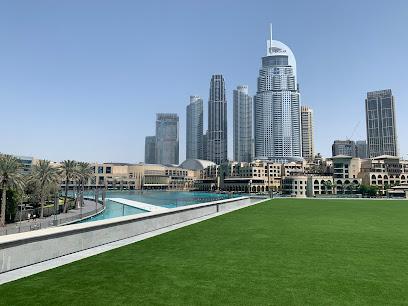
City Centre Al Shindagha
Discover a vibrant shopping experience at City Centre Al Shindagha, where modern retail meets Dubai's rich cultural heritage.
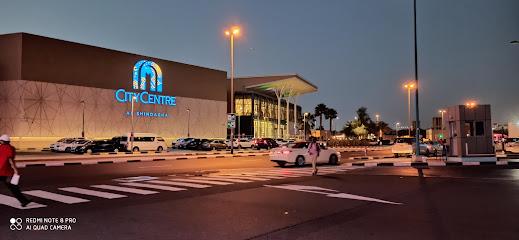
Sharjah Aquarium
Discover the mesmerizing marine life and conservation efforts at Sharjah Aquarium, a must-visit attraction in the heart of Sharjah.
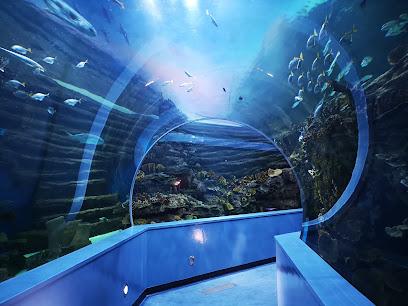
Emirates Golf Club
Experience world-class golfing at Emirates Golf Club, Dubai's premier golf destination with breathtaking views and luxurious amenities.
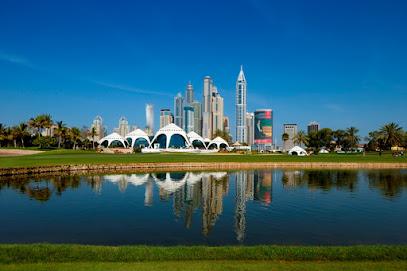
The Sevens Stadium
Discover the thrill of sports and entertainment at The Sevens Stadium in Dubai, where world-class events come alive in an electrifying atmosphere.
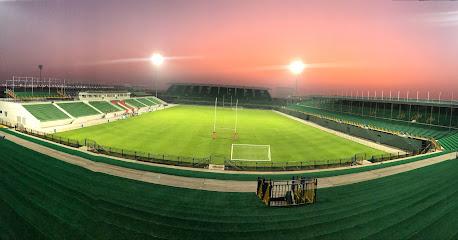
The Storm Coaster
Dive into excitement at The Storm Coaster in Dubai, where thrilling rides and unforgettable moments await every adventurer.
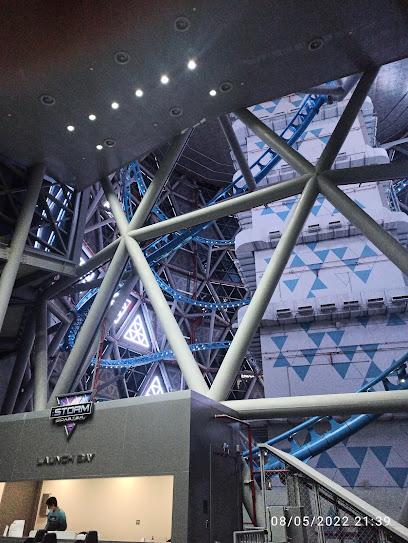
Mirzam Chocolate Makers Factory & Store
Explore the rich flavors of the Middle East at Mirzam Chocolate Makers in Dubai - where artisan chocolate meets cultural heritage.
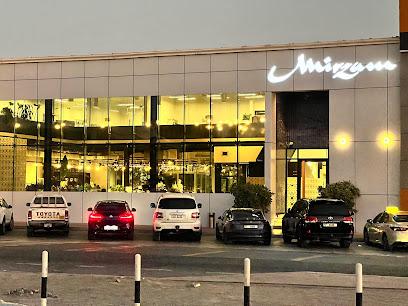
Dubai Islands Beach
Experience the beauty of Dubai Islands Beach, a perfect blend of relaxation and adventure under the sun in Dubai's stunning coastal paradise.
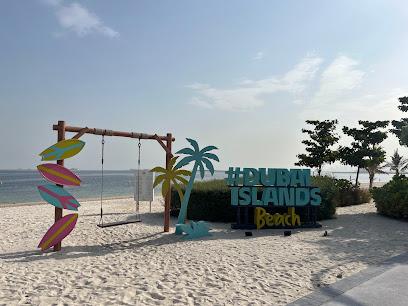
Al Mahatta Museum
Explore the rich aviation heritage of the UAE at Al Mahatta Museum, a captivating journey through the history of flight in Sharjah.
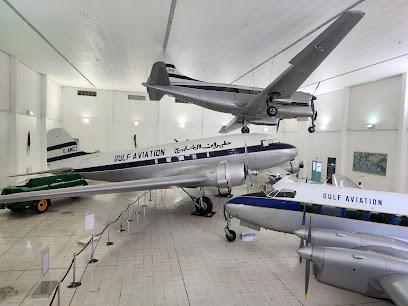
3D Blacklight Minigolf Dubai
Experience the enchanting world of 3D Blacklight Minigolf in Dubai – a fun-filled adventure for families and friends with stunning visuals and exciting challenges.
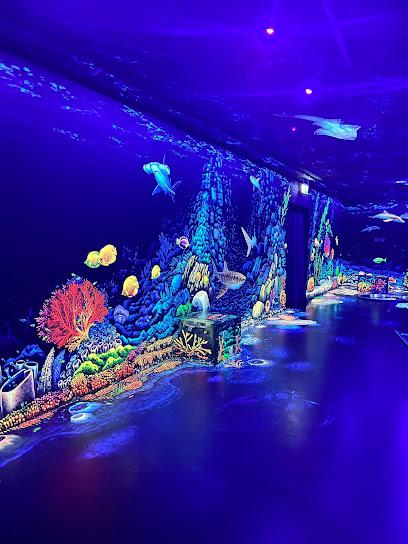
Infinity des Lumières
Experience the mesmerizing fusion of art and technology at Infinity des Lumières in Dubai Mall, an unforgettable digital art experience for all.
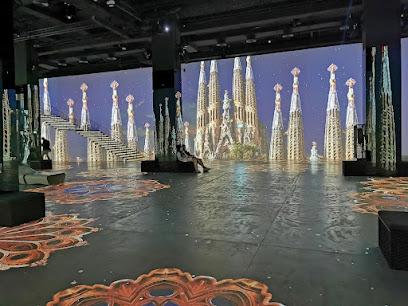
Sheikh Mohammed Centre for Cultural Understanding
Explore the rich heritage of Dubai at Sheikh Mohammed Centre for Cultural Understanding, a cultural center fostering cross-cultural dialogue and appreciation.
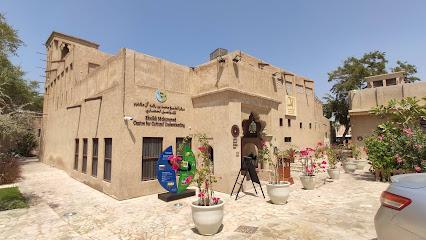
Camelicious
Experience the unique flavors of camel milk and immerse yourself in the rich tradition of camel husbandry at Camelicious, Dubai's premier dairy farm.
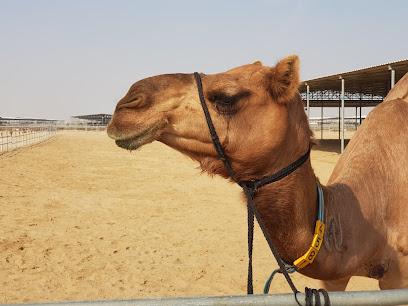
Al Ittihad Park
Experience the serene beauty and cultural heritage of Al Ittihad Park on Palm Jumeirah, your tranquil escape in Dubai.
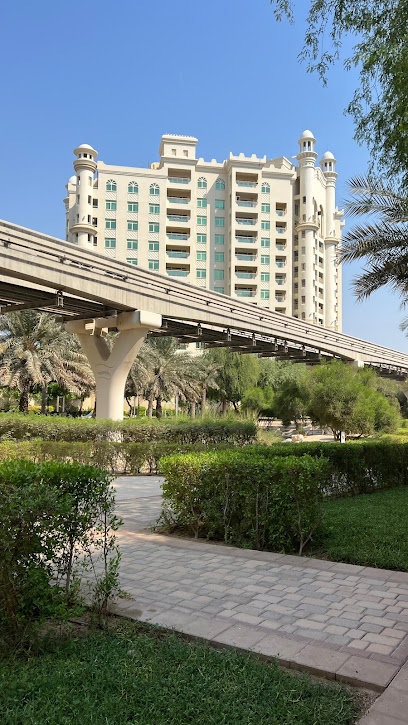
Unique Desert Tourism LLC
Experience the enchanting Arabian Desert with Unique Desert Tourism LLC, offering unforgettable adventures and cultural immersions in Dubai's stunning landscapes.
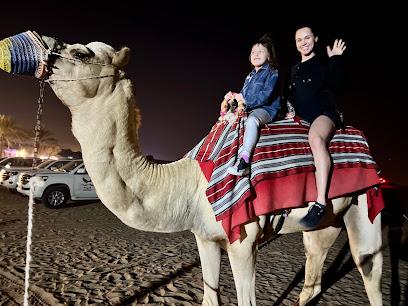
Essential places to dine
Grand ZOR Restaurant
Discover the exquisite flavors of Uzbekistan at Grand ZOR Restaurant in Dubai's iconic Fairmont - The Palm Jumeirah.
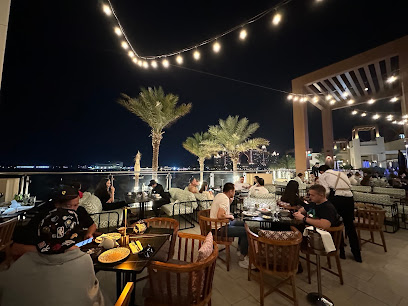
The Tap House Palm Jumeirah
Experience exquisite American and European cuisine at The Tap House on Palm Jumeirah - where great food meets stunning views.
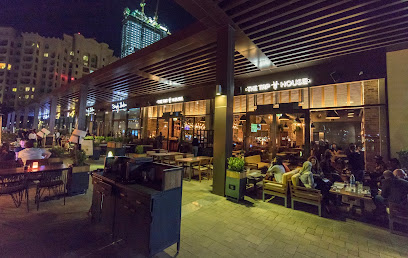
Maiden Shanghai | Chinese restaurant in Dubai
Experience exquisite Chinese cuisine at Maiden Shanghai in Dubai's iconic Palm Jumeirah – where fine dining meets vibrant entertainment.
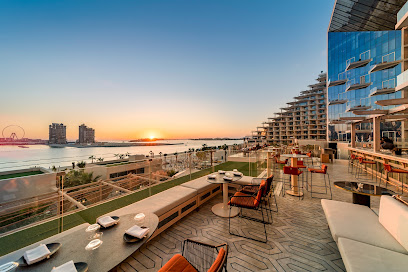
Miyabi Sushi
Discover authentic Japanese cuisine at Miyabi Sushi on Palm Jumeirah - where exquisite flavors meet breathtaking views.
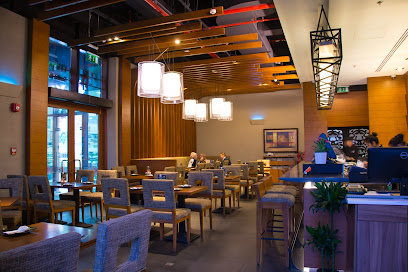
Peaches & Cream Beach Restaurant
Experience delightful Mediterranean flavors with breathtaking views at Peaches & Cream Beach Restaurant on Palm Jumeirah.
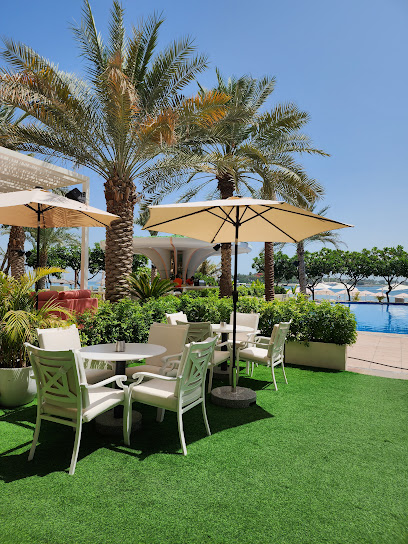
Ula Dubai
Experience exquisite Mediterranean cuisine at Ula Dubai, located on the stunning Palm Jumeirah – where flavor meets breathtaking views.
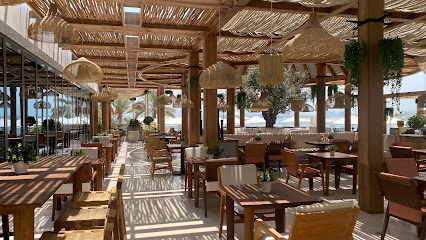
Little Miss India
Experience authentic Indian cuisine with stunning views at Little Miss India in Palm Jumeirah, Dubai – where every dish tells a story.
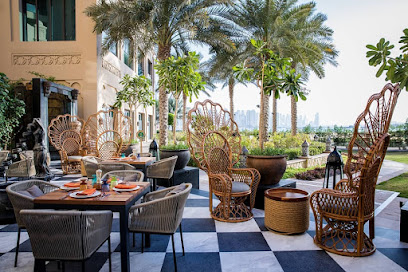
FREVO
Experience the vibrant flavors of Brazil at FREVO in Palm Jumeirah - a premier restaurant offering exquisite cuisine amidst breathtaking views.
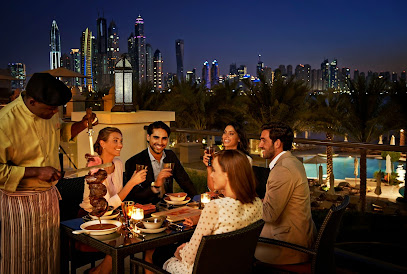
Lucky Fish
Experience luxury dining at Lucky Fish on Palm Jumeirah – where fresh seafood meets stunning views in Dubai.
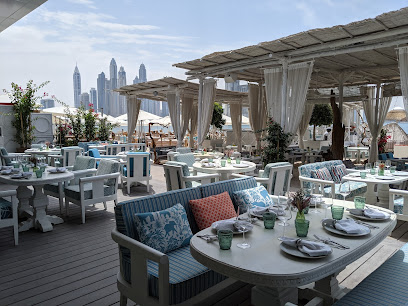
Rumba Dubai
Experience authentic Cuban cuisine at Rumba Dubai on The Palm Jumeirah—where vibrant flavors meet stunning waterfront views.
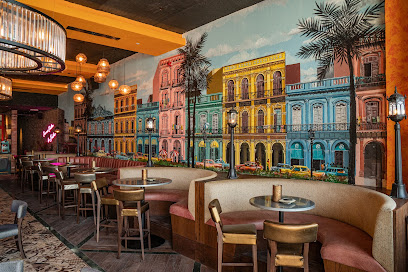
EVA Beach Restaurant
Discover exquisite dining at EVA Beach Restaurant on Palm Jumeirah - where stunning views meet culinary excellence.
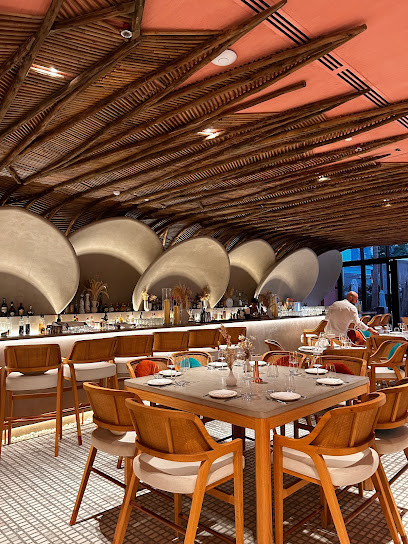
Palm Bay Dubai
Experience exquisite dining at Palm Bay Dubai – where culinary diversity meets stunning waterfront views.
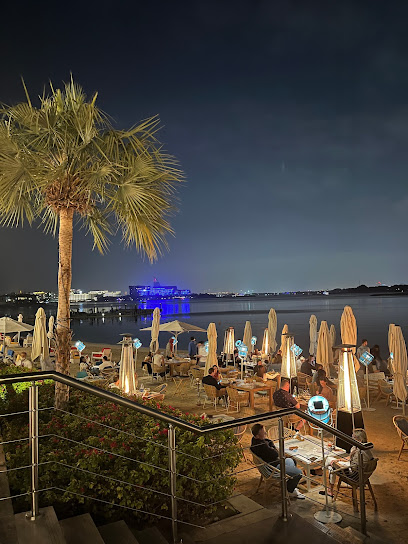
Blvd on One
Experience authentic Lebanese cuisine at Blvd on One in Palm Jumeirah, where vibrant flavors meet stunning views in a luxurious setting.
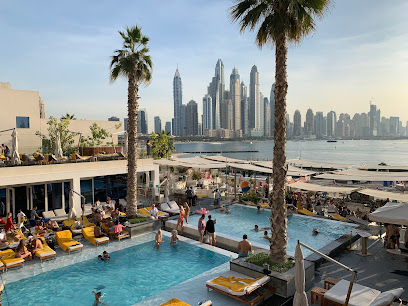
Rue Royale Restaurant Dubai
Experience exquisite French cuisine at Rue Royale Restaurant Dubai, where elegance meets culinary excellence amidst stunning waterfront views.
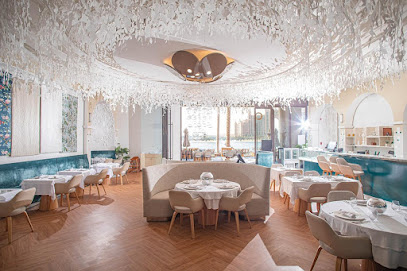
La Coco Dubai
Discover La Coco Dubai: A vibrant Mexican dining experience on Palm Jumeirah with live music and delicious cuisine.
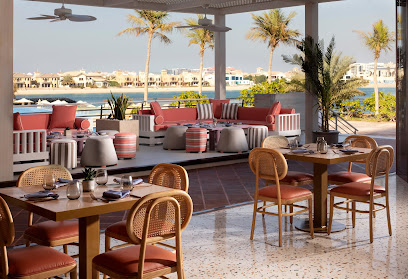
Markets, malls and hidden boutiques
Thrift for Good
Explore sustainable shopping at Thrift for Good in Dubai - uncover unique treasures while supporting a charitable cause.
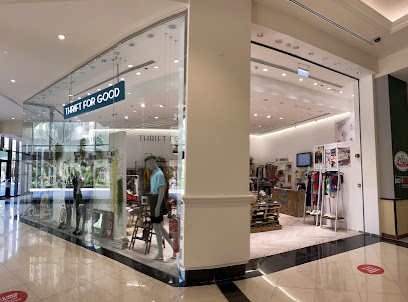
Lady D World (Nakheel Mall)
Explore the luxurious jewelry offerings at Lady D World in Nakheel Mall, a jewel in the heart of Palm Jumeirah, Dubai.
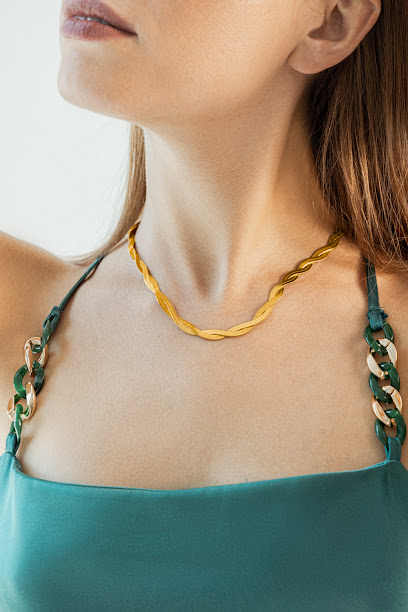
Atlantis Mall
Explore the luxurious Atlantis Mall on Palm Jumeirah, where shopping, dining, and entertainment come together in a stunning setting.
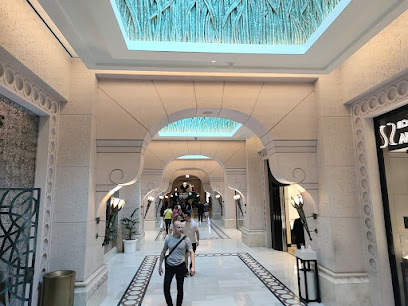
H&M
Explore the latest fashion trends at H&M in Nakheel Mall, The Palm Jumeirah, where style meets affordability in Dubai's iconic shopping destination.
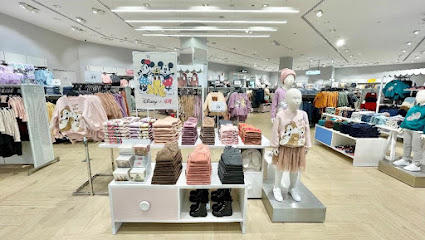
SEPHORA NAKHEEL PALM
Explore the ultimate beauty destination at Sephora Nakheel Palm in Dubai, offering a diverse range of cosmetics, skincare, and perfumes to enhance your beauty experience.
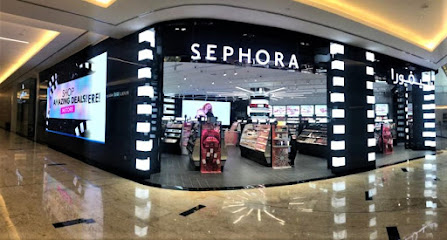
Sand Dollar Dubai Swimwear & Fashion Boutique @ The Fairmont
Shop at Sand Dollar Dubai for an exquisite selection of swimwear and beachwear, perfect for making a splash on the shores of the Palm Jumeirah.
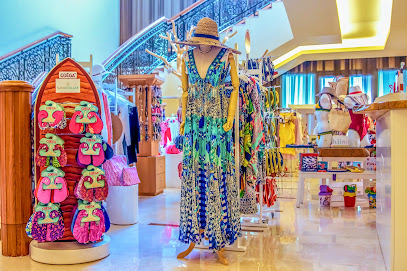
OMEGA - Nakheel Mall
Discover the elegance of OMEGA watches at Nakheel Mall, a luxurious shopping destination in Palm Jumeirah, Dubai.
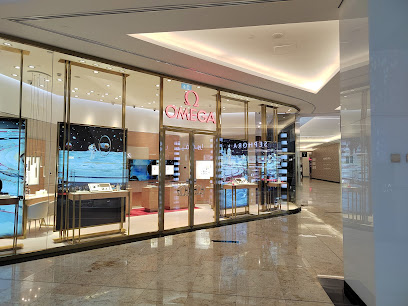
Voyage by BI
Discover unique souvenirs and local treasures at Voyage by BI, the charming gift shop on Palm Jumeirah, Dubai.
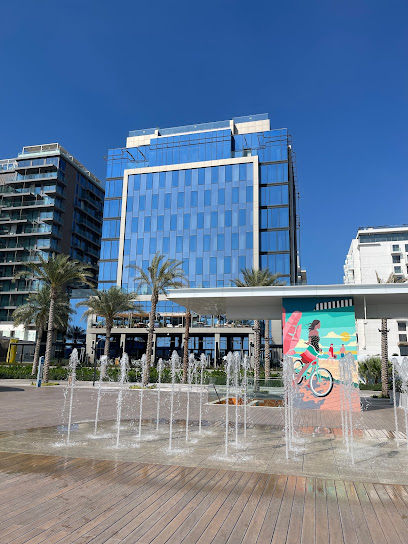
The Gift Wrap Boutique- Nakheel Mall Palm Jumeirah
Explore The Gift Wrap Boutique at Nakheel Mall for unique gifts and bespoke wrapping services to elevate your gifting experience on Palm Jumeirah.
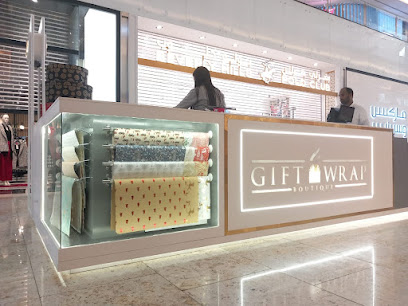
L'AQUA
Discover the ultimate beach fashion at L'AQUA in Palm Jumeirah, Dubai - stylish swimwear and accessories for every beach lover.
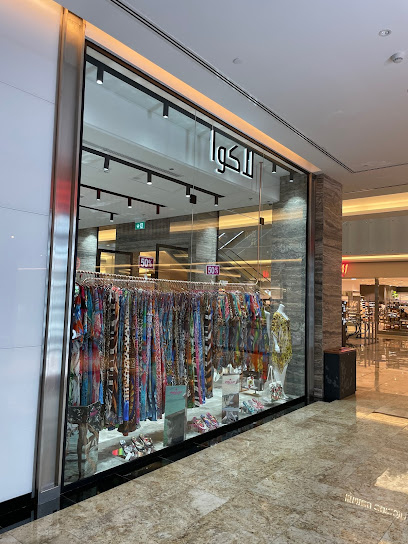
organic.cosmetic.azetabio
Explore AzetaBio, the premier children's store on Palm Jumeirah, specializing in organic products for health-conscious families.
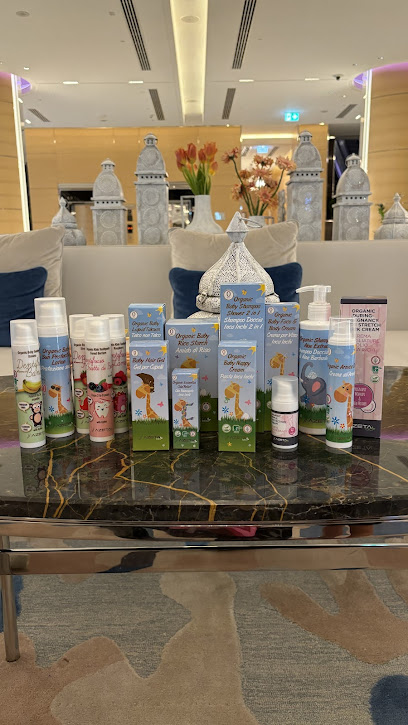
Tutus Kurniati Concept Store
Explore elegance at Tutus Kurniati Concept Store in Dubai, your go-to destination for women's fashion and accessories in the Palm Jumeirah.
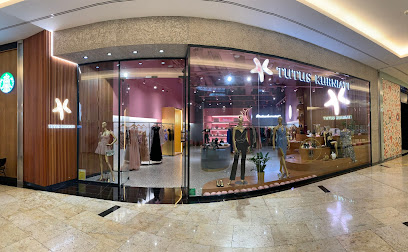
I Love Dubai - Pointe
Discover unique souvenirs that capture the essence of Dubai at I Love Dubai - Pointe on the stunning Palm Jumeirah.
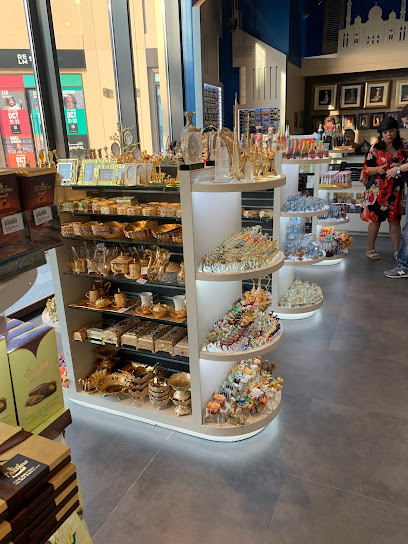
Daiso Japan
Explore a world of affordable treasures at Daiso Japan in Nakheel Mall, where unique gifts and delightful finds await every shopper.
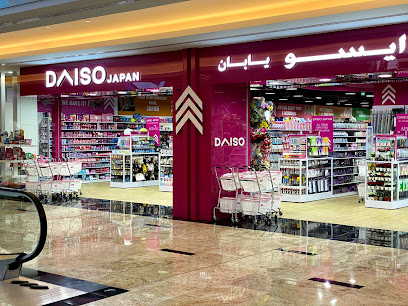
allday minimart Palm Azraq
Discover premium products at All-Day Minimart, the ultimate gourmet grocery store on Palm Jumeirah, Dubai's luxurious destination.
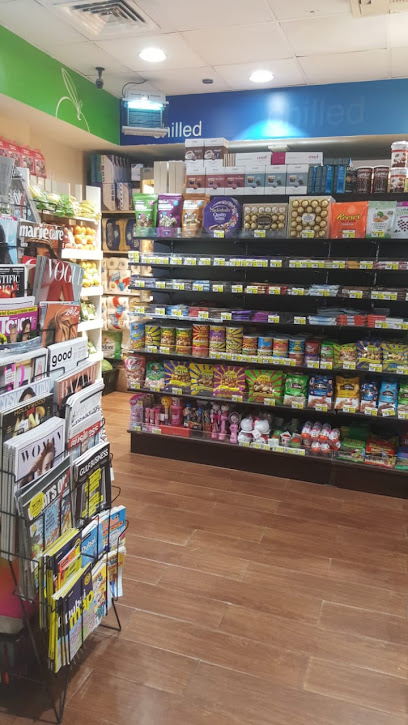
Essential bars & hidden hideouts
The Tap House Palm Jumeirah
Discover the vibrant atmosphere and exquisite flavors of The Tap House on Palm Jumeirah, where beachside dining meets culinary excellence.
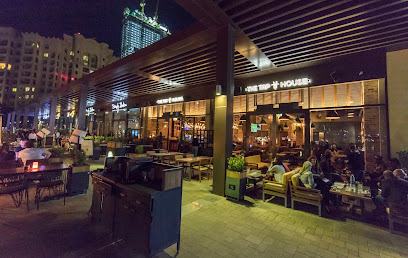
Above Eleven Dubai
Experience the breathtaking views and exquisite fusion cuisine at Above Eleven Dubai, the ultimate rooftop destination for food and nightlife lovers.
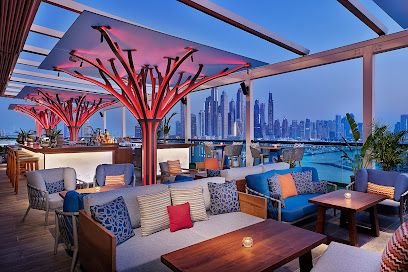
McGettigan's Factory The Palm
Discover the vibrant ambiance, delicious Irish cuisine, and thrilling sports atmosphere at McGettigan's Factory The Palm in Dubai.
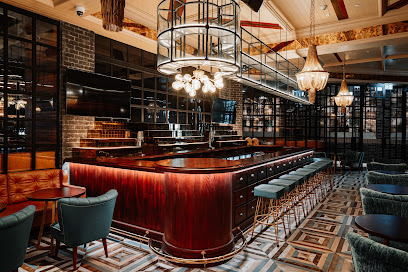
Barfly by Buddha-Bar Dubai
Experience luxury and vibrancy at Barfly by Buddha-Bar Dubai, where Asian fusion meets an energetic nightlife ambiance on the stunning Palm Jumeirah.
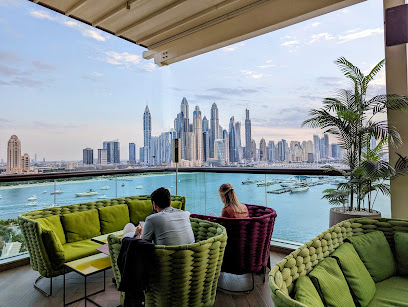
Sola Jazz Lounge
Experience the allure of live jazz at Sola Jazz Lounge, a luxurious venue on Palm Jumeirah, Dubai, perfect for unforgettable nights filled with music and ambiance.
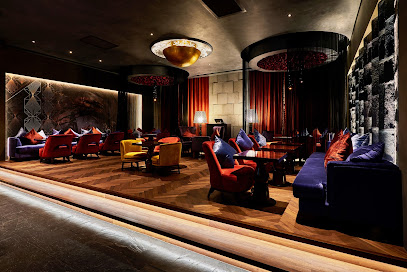
ABOVE 21 | Upscale whisky and cigar lounge in Dubai
Experience luxury at ABOVE 21, Dubai's premier whisky and cigar lounge, featuring stunning views and an extensive selection of premium spirits.
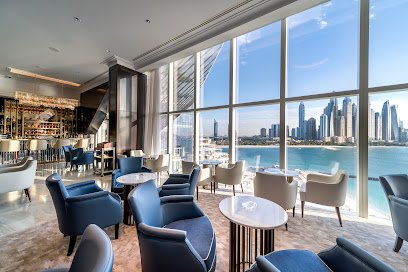
Raia Restaurant & Lounge
Experience the best of Mediterranean cuisine and stunning views at Raia Restaurant & Lounge on Palm Jumeirah.
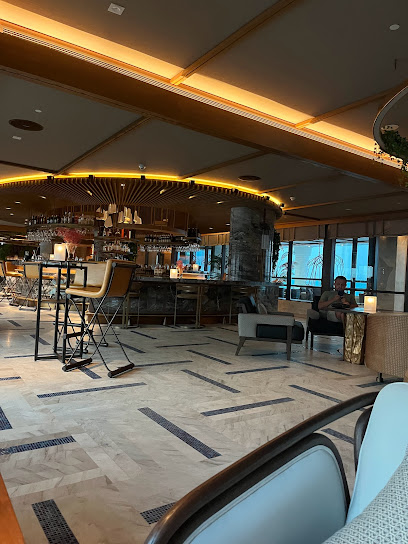
K-West Sports Bar
Experience luxury and excitement at K-West Sports Bar, your premier destination for sports and relaxation in Palm Jumeirah, Dubai.
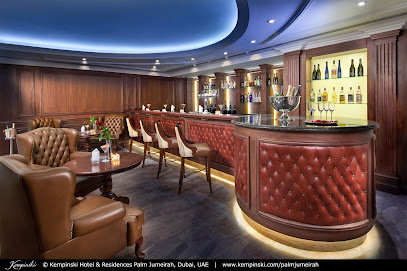
Roaring Rabbit Gastropub
Experience the perfect blend of contemporary cuisine and lively atmosphere at Roaring Rabbit Gastropub in Palm Jumeirah, Dubai.
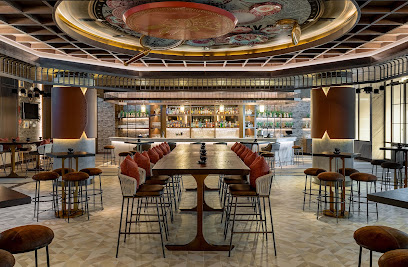
Seven Sports Bar at NH Collection Dubai The Palm
Discover the ultimate sports bar experience at Seven Sports Bar in Dubai's iconic Palm Jumeirah, where delicious food and thrilling sports unite.
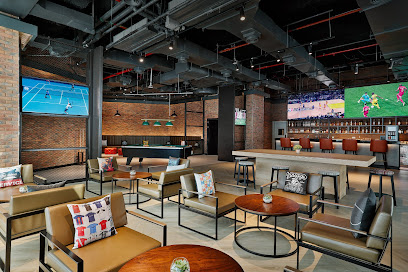
Roar | Crafted Cocktail Bar in Dubai | FIVE Palm Jumeirah
Discover the luxurious Roar Cocktail Bar at FIVE Palm Jumeirah, where crafted cocktails meet stunning views and vibrant nightlife in Dubai.
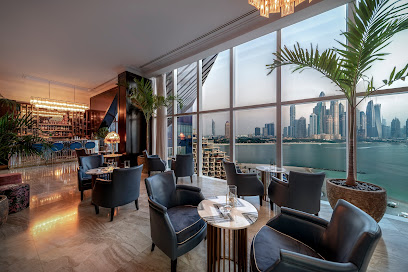
Myami Pool Bar & Lounge
Experience the vibrant atmosphere and stunning views at Myami Pool Bar & Lounge, the perfect destination for relaxation and indulgence in Dubai.
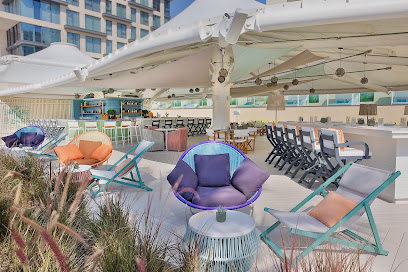
Maiden Terrace
Experience luxury and stunning views at Maiden Terrace, a premier lounge on Palm Jumeirah, Dubai's iconic destination.
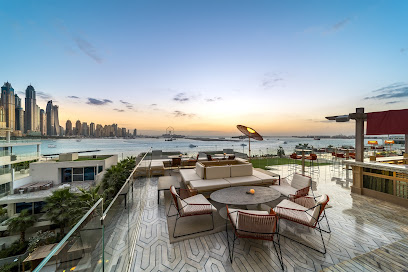
Dukes Bar
Experience the elegance and vibrant atmosphere of Dukes Bar in Palm Jumeirah, Dubai, where exquisite drinks meet stunning views.
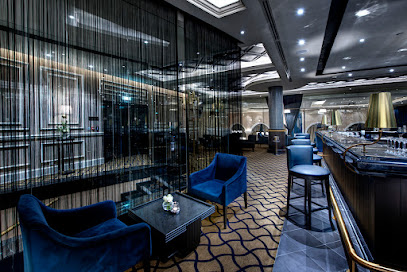
Local Phrases about Palm Jumeirah
-
- Helloمرحبا
[marhaba] - Goodbyeوداعا
[wadaea] - Yesنعم
[naam] - Noلا
[laa] - Please/You're welcomeمن فضلك
[min fadlik] - Thank youشكرا
[shukran] - Excuse me/Sorryعذرا
[aathiraa] - How are you?كيف حالك؟
[kayf halak?] - Fine. And you?بخير. وأنت؟
[bikhayr. wa anta?] - Do you speak English?هل تتحدث الإنجليزية؟
[hal tatahadath al'injlizia?] - I don't understandلا أفهم
[laa afham]
- Helloمرحبا
-
- I'd like to see the menu, pleaseأود رؤية القائمة، من فضلك
[awad ru'ya alqaima, min fadlik] - I don't eat meatأنا لا آكل اللحم
[ana la aakul allahm] - Cheers!في صحتك!
[fi sahtak!] - I would like to pay, pleaseأود أن أدفع، من فضلك
[awad an adfae, min fadlik]
- I'd like to see the menu, pleaseأود رؤية القائمة، من فضلك
-
- Help!النجدة!
[alnajda!] - Go away!انصرف!
[ansarif!] - Call the Police!اتصل بالشرطة!
[atsil bialshurta!] - Call a doctor!اتصل بطبيب!
[atsil tabib!] - I'm lostضاعت الطريق
[da'at altariq] - I'm illأنا مريض
[ana mareed]
- Help!النجدة!
-
- I'd like to buy...أريد أن أشتري...
[uriidu 'an ashtarii...] - I'm just lookingأنا فقط أتفرج
[ana faqat atafarraj] - How much is it?كم سعره؟
[kam sa'ruh?] - That's too expensiveهذا غالي جدا
[hatha ghali jiddan] - Can you lower the price?هل يمكنك تخفيض السعر؟
[hal yumkinuk tukhfid alsa'ru?]
- I'd like to buy...أريد أن أشتري...
-
- What time is it?كم الساعة؟
[kam alsaa'a?] - It's one o'clockالساعة الواحدة
[alsaa'at alwahida] - Half past (10)الساعة العاشرة والنصف
[alsaa'at al'ashirat wannahf] - Morningالصباح
[alsabah] - Afternoonالظهر
[aldhuhur] - Eveningالمساء
[almasa'] - Yesterdayأمس
[ams] - Todayاليوم
[alyawm] - Tomorrowغدا
[ghadan] - 1واحد
[wahid] - 2إثنان
[ithnayn] - 3ثلاثة
[thalatha] - 4أربعة
[arba'a] - 5خمسة
[khamsa] - 6ستة
[sitta] - 7سبعة
[sab'a] - 8ثمانية
[thamania] - 9تسعة
[tis'a] - 10عشرة
[ashara]
- What time is it?كم الساعة؟
-
- Where's a/the...?أين الـ...؟
[ayn al...] - What's the address?ما هو العنوان؟
[ma huwa al'anaan?] - Can you show me (on the map)?هل يمكنك أن تريني (على الخريطة)؟
[hal yumkinuk 'an tureeni (ala alkhareetah)?] - When's the next (bus)?متى الحافلة التالية؟
[mata alhafilat altaalia?] - A ticket (to ....)تذكرة (إلى ...)
[tadhkirat (ila ...)]
- Where's a/the...?أين الـ...؟
History of Palm Jumeirah
-
The idea for Palm Jumeirah was first conceived in the late 1990s as part of Dubai's ambitious plan to boost tourism and create unique residential opportunities. The project was spearheaded by Nakheel Properties, a government-owned development company. Inspired by Dubai's natural coastline, the developers envisioned an artificial archipelago shaped like a palm tree, which would add an additional 56 kilometers of waterfront to the city.
-
Construction of Palm Jumeirah began in 2001. It was one of the most ambitious engineering projects ever undertaken, involving extensive dredging and land reclamation. Belgian and Dutch dredging companies were contracted to create the island by bringing in millions of cubic meters of sand from the Persian Gulf. The outer crescent of the palm was designed as a breakwater to protect the inner fronds from strong sea currents.
-
The project required groundbreaking engineering techniques. One of the significant challenges was ensuring the island's stability and longevity. Engineers used GPS technology for precise placement of sand and rock. Additionally, a geotextile membrane was laid down to prevent the sand from shifting, and a special vibro-compaction method was employed to solidify the landmass. The breakwater itself was constructed using over 7 million tons of rock.
-
The first phase of Palm Jumeirah was completed in 2006, with the initial residents moving in that same year. A variety of residential, leisure, and entertainment facilities began to open, including luxury hotels, beachfront villas, and apartment buildings. The island quickly became a symbol of Dubai's rapid growth and its vision for the future. Prominent hotels like Atlantis The Palm opened in 2008, adding to the island's allure.
-
Palm Jumeirah has had a significant cultural impact on Dubai and the broader region. It has become one of the most recognizable landmarks in the world, featured in numerous films, television shows, and travel documentaries. The island has also hosted countless international events, including concerts, fashion shows, and sports competitions. Its development has spurred further innovation in architectural design and urban planning.
-
While Palm Jumeirah has been a marvel of modern engineering, it has also raised environmental concerns. The construction process altered marine ecosystems and affected local wildlife. In response, Nakheel Properties implemented several environmental measures, such as creating new marine habitats and artificial reefs. The company also engaged in ongoing monitoring and rehabilitation programs to mitigate the environmental impact.
-
Palm Jumeirah continues to evolve with new projects and developments. Recent years have seen the addition of more luxury hotels, residential complexes, and recreational facilities. Future plans include expanding the island's infrastructure and enhancing its sustainability through eco-friendly initiatives. Palm Jumeirah remains a focal point for Dubai's tourism and residential sectors, symbolizing the emirate's relentless drive for innovation and excellence.
Palm Jumeirah Essentials
-
Palm Jumeirah is located in Dubai, United Arab Emirates. The nearest major airport is Dubai International Airport (DXB), which is approximately 30 kilometers away. From the airport, you can reach Palm Jumeirah by taxi, which takes around 30 minutes. Alternatively, you can use the Dubai Metro Red Line to reach the Dubai Marina Station, and then take a tram to the Palm Jumeirah Monorail at the Gateway Station. The monorail provides a direct route to the Palm.
-
Within Palm Jumeirah, the monorail is a convenient mode of transport, running from the Gateway Station to the Atlantis Hotel. Taxis and ride-hailing services like Uber and Careem are also readily available. Renting a car is another option, though parking can be limited at popular spots. For a unique experience, you can also explore the area by yacht or boat, with several companies offering rentals and tours.
-
The official currency is the United Arab Emirates Dirham (AED). Credit and debit cards are widely accepted in hotels, restaurants, and shops. ATMs are abundant, and many establishments also accept contactless payments via mobile wallets like Apple Pay and Google Pay. It is advisable to carry some cash for smaller vendors or in case of emergencies.
-
Palm Jumeirah is generally a very safe destination with low crime rates. However, it is always wise to stay vigilant, particularly in crowded areas where petty theft can occur. Avoid unlit areas at night and be cautious with your belongings. There are no specific high-crime areas targeting tourists within Palm Jumeirah.
-
In case of emergency, dial 999 for police assistance and 998 for medical emergencies. Dubai has modern hospitals and clinics, and Palm Jumeirah is within easy reach of several facilities. It is recommended to have travel insurance that covers medical emergencies. Pharmacies are available for minor health issues, and many hotels have first aid kits.
-
Fashion: Do dress modestly in public areas. Swimwear is acceptable at pools and beaches but should not be worn in public spaces. Religion: Do respect Islamic customs and traditions. Avoid eating, drinking, or smoking in public during Ramadan. Public Transport: Do be courteous and offer seats to those in need. Avoid loud conversations and eating on public transport. Greetings: Do greet people with a handshake, but be aware that some may prefer not to shake hands with the opposite gender. Eating & Drinking: Do try the local cuisine and be respectful of dietary restrictions. Drinking alcohol is allowed in licensed venues but avoid public intoxication.
-
To experience Palm Jumeirah like a local, explore the walking paths and parks along the fronds and the trunk. Visit the local markets for fresh seafood and produce. Engage with residents and staff who can offer personalized recommendations. For a unique experience, consider a visit to The Pointe, which offers a variety of dining and entertainment options with stunning views of the Atlantis Hotel.
Trending Landmarks in Palm Jumeirah
-
The View at the Palm
-
The Lost Chambers Aquarium at Aquaventure World
-
The Lost Chambers Aquarium
-
The Pointe - Palm Jumeirah Fountain Walk (North)
-
Al Ittihad Park
-
Palm Jumeirah Corniche Area
-
Palm Jumeirah Boardwalk
-
Palm Jumeirah West
-
The Boardwalk, Palm Jumeirah
-
Crescent St. Palm Jumeirah WalkWay
-
Palm Jumeirah Walk way
-
Palm jumerah
-
The Palm Jumeirah - United Arab Emirates
-
The view at Pal Jumeirah
Nearby Cities to Palm Jumeirah
-
Things To Do in Sharjah
-
Things To Do in Ajman
-
Things To Do in Umm Al Quwain
-
Things To Do in Abu Dhabi
-
Things To Do in Ras Al Khaimah
-
Things To Do in Al Ain
-
Things To Do in Fujairah
-
Things To Do in Khor Fakkan
-
Things To Do in Dibba Al-Fujairah
-
Things To Do in Khasab
-
Things To Do in Sohar
-
Things To Do in Ibri
-
Things To Do in Rustaq
-
Things To Do in Bahla
-
Things To Do in Nizwa












